The 7 Craziest Food Lawsuits of 2022, From Velveeta to Pop-Tarts
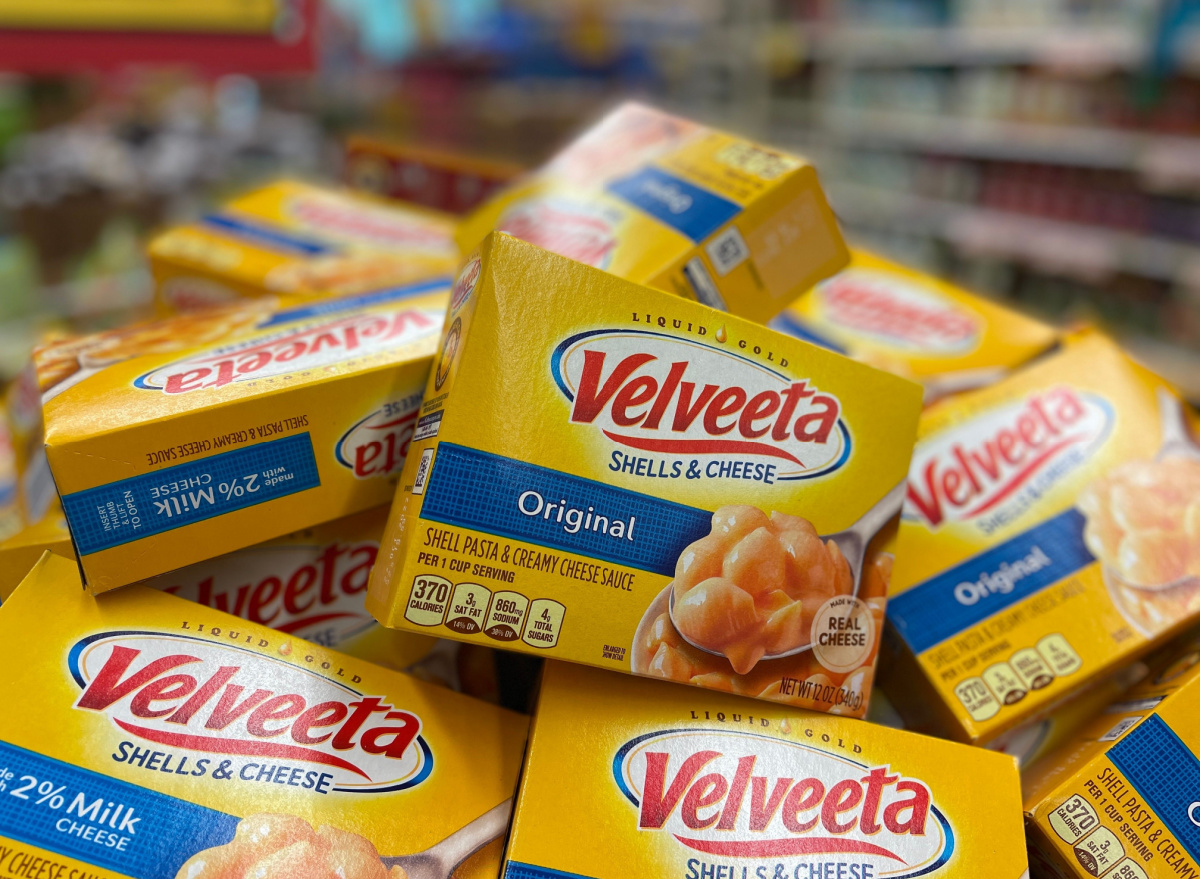
If you’ve been less than satisfied with a food product or a restaurant meal lately, you’re not alone. The problem has grown to be quite common. While some consumers simply toss out a few complaints and call it a day, others have resorted to more drastic legal measures to address their grievances.
Lawsuits against food and beverage companies have gone through the roof in recent years—peaking in 2021 with a total of over 300 class action lawsuits filed. Many of these cases hold a lot of legitimacy, addressing issues such as harmful materials found in products, untrue sustainability claims, or false advertising. No, you can’t call a product “100% Natural” if it’s chock full of preservatives and artificial sweeteners.
So yes, many of these litigious claims prove to have validity. But there are always a select few that are rather gratuitous and, in some cases, downright bizarre. We all remember the woman who sued McDonald’s for coffee that was “too hot,” or when Kellogg’s faced a lawsuit for its fruitless Froot Loops.
Here are some of the craziest lawsuits brought against food companies in 2022.
The Velveeta Shells & Cheese prep time
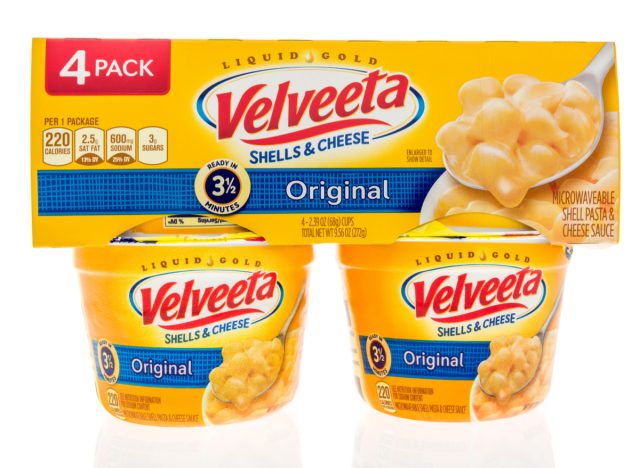
Time is certainly a valuable asset—but is a couple extra minutes worth $5 million? According to Florida consumer Amanda Ramirez, the answer is yes. Ramirez filed a class action lawsuit against Kraft Heinz in November, claiming that the company’s Velveeta Shells & Cheese takes longer than its advertised 3.5 minutes to make. The lawsuit makes the argument that this allotted time only covers the step of microwaving the product, and other actions like opening the package and mixing together water and cheese sauce are not factored in.
In response, a Kraft Heinz spokesperson told CNN, “We are aware of this frivolous lawsuit and will strongly defend against the allegations in the complaint.”
The Texas Pete Hot Sauce misnomer
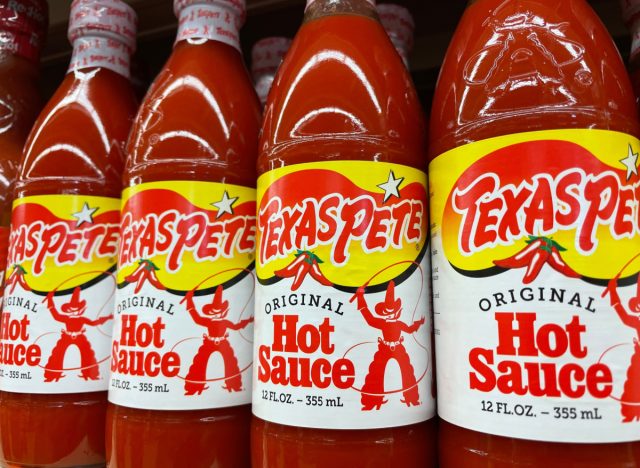
You may recall a lawsuit revolving around Barilla pasta and its non-Italian origins. Well, another very similar case popped up around the same time focused on the Texas Pete hot sauce brand.
Contrary to its name, the hot sauce is not made in the Lone Star state. It is actually crafted in Winston-Salem, N.C.—a fact which California resident Philip White was shocked to learn and which ultimately prompted the class action lawsuit. White says that despite the hot sauces’ Texas-style images, which include the white star from the state’s flag and a cowboy, “there is surprisingly nothing Texas about them,” and he wouldn’t have purchased the product if he had known its true origin.
While White appeared to be tricked by the brand’s name and appearance, the company’s website does explain the inception of Texas Pete in detail and clearly states that its actual home is, and always has been, North Carolina. A quick peek at the product’s back label also reveals it is from North Carolina.
The Blue Diamond (Non)Smokehouse Almonds
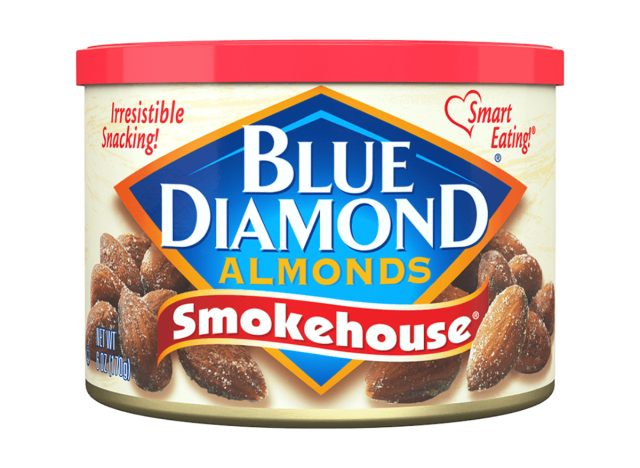
Accurate wording is everything when it comes to advertisements—a lesson that snack company Blue Diamond was faced with earlier this year. One customer, Margo Clark of Chicago, was outraged that the company’s Smokehouse flavored almonds were in fact not produced in a smokehouse. According to Clark, since the almonds are not made through the process of using actual smoke, and instead simply include a “natural hickory smoke flavor,” they are not worthy of the name.
The filing goes on to mention that the almonds’ orange and red-colored container is misleading as it is “evocative of the colors of fire.” And, the complaint additionally argues that “foods that are not made in a smokehouse should contain a prominent statement such as ‘with added smoke flavor,’ ‘smoke-flavored’ or with ‘natural smoke flavor.'” This is certainly one consumer who is nuts about their nuts!
The catfishing burgers
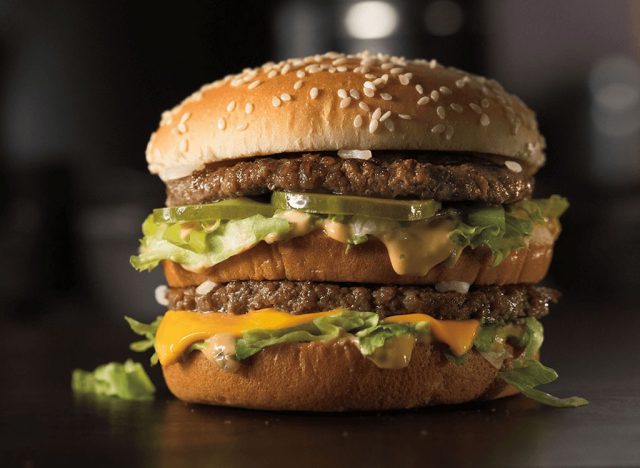
We’ve all fallen victim to something (or someone) that looks better in a picture than it does in person. And burgers are no exception. In a lawsuit filed earlier this year, New Yorker Justin Chimienti alleged that big burger chains McDonald’s and Wendy’s misrepresent their products—including popular burgers like The Baconator and the Big Mac—in advertisements.
The claim asserts that these companies photograph their products when the meat is not yet fully cooked, making them look up to 15-20% larger than in real life—a tactic which is “unfair and financially damaging” according to the plaintiff.
This case followed closely after a similar one against Burger King, putting all three of America’s top burger chains in hot water this year.
Strawberry-Less Pop-Tarts
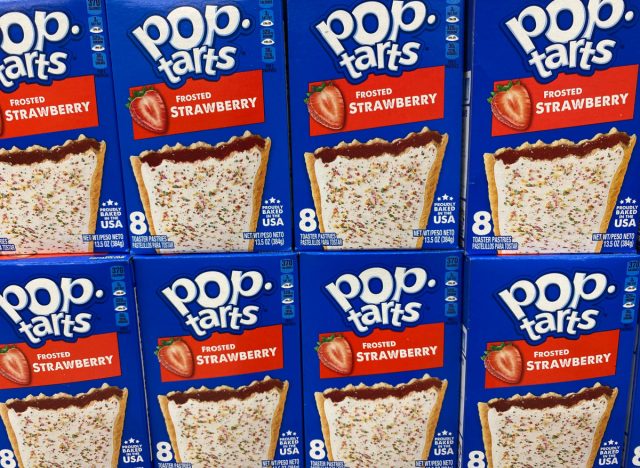
Multiple lawsuits have been filed in recent years against Kellogg’s Frosted Strawberry Pop-Tarts and their disheartening lack of real strawberries. Consumers have taken issue with the the fact that the toaster pastries are mostly filled with other fruits—namely apples and pears—which they claim to be inferior to strawberries in terms of health benefits. Although, if people are relying on Pop-Tarts for their health value, there might be a larger problem here.
One of these cases filed by Kelvin Brown from New York was officially dismissed in April this year, laying the pop-tart fiasco to rest for now. “No reasonable consumer would see the entire product label, reading the words ‘Frosted Strawberry Pop-Tarts’ next to a picture of a toaster pastry coated in frosting, and reasonably expect that fresh strawberries would be the sole ingredient in the Product,” U.S. District Judge Andrew Carter wrote in the case’s ruling, according to NPR.
Dunkin’s Scalding Hot Coffee
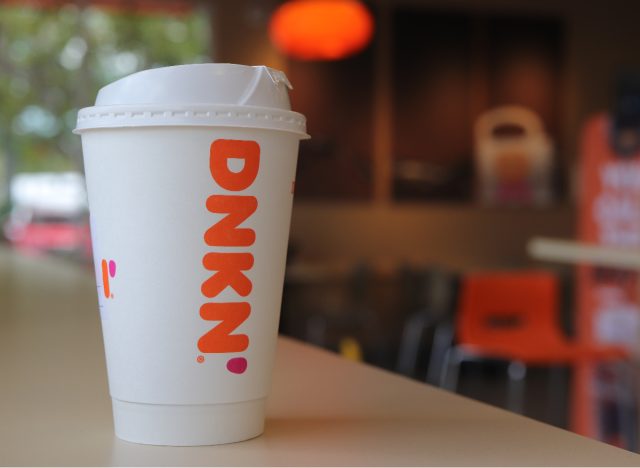
It seems no chain is safe from hot coffee allegations. Alongside McDonald’s, Dunkin’ has faced its fair share of lawsuits, with a few taking place just this year.
One filing was from New Jersey couple Evan Arlington and Stephanie Arlington-Macias who say coffee spilled on Arlington’s lap while in the drive-thru. The claim alleges that “as a result thereof, plaintiff Evan Arlington has been severely injured, has suffered and in the future will suffer great pain and mental anguish.” The lawsuit goes on to say that Arlington’s wife “suffered a loss of her husband’s aid, comfort, conjugal fellowship, and consortium” following the unfortunate event. Ouch!
According to Dan Cox, an expert in this field, plaintiffs rarely prevail in these types of spillage cases. “Everyday coffee and tea drinkers consume millions of beverages without incident,” Cox told Insider. “It only becomes an issue when it is used improperly i.e. spilled.”
Whole Foods’ Deceptive Rice Boxes
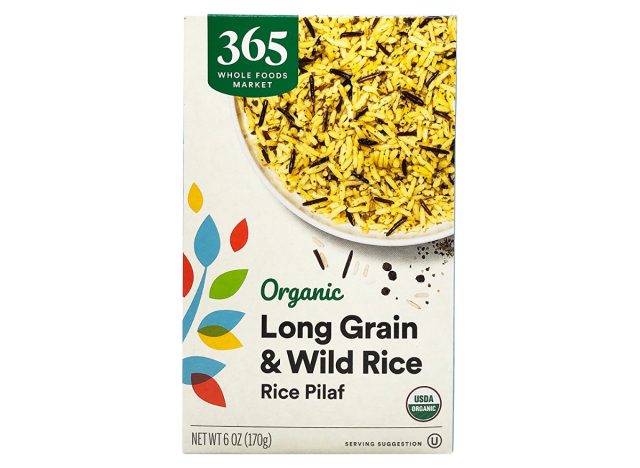
This isn’t the first time a consumer has complained about a disproportionate amount of product compared to packaging, and it won’t be the last. Chip companies such as Wise Foods have faced legal action for too much air in their chip bags, Tootsie Roll Industries was once put under scrutiny for under-filling Junior Mints boxes, and in 2022 Whole Foods was scrutinized for empty space in its Everyday 365 Rice Pilaf packaging.
The lawsuit from Leroy Jacobs claimed that the product’s box was too big, making it look like more rice was included than there was. The case has since been dismissed by U.S. District Judge Elaine E. Bucklo, who ruled that “a reasonable consumer expects the size of the box to bear only a loose relationship to the amount of cooked product its contents will yield.”
The ruling also mentions that accurate serving sizes and labeling did appear on the box and was therefore not misleading.








